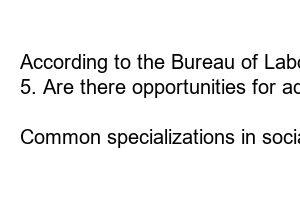사회복지사 구인구직
Are you passionate about helping others and making a positive difference in people’s lives? If so, you might be interested in exploring social worker job openings. Social work is a rewarding field that offers opportunities to support individuals, families, and communities in various ways. Whether you’re just starting your career or looking for a change, the demand for social workers remains high, with job openings available in a range of settings and specializations.
1. **What does a social worker do?**
Social workers are professionals who assist individuals and groups in dealing with challenges and improving their well-being. They may provide counseling, advocate for clients’ rights and needs, connect them to community resources, and coordinate services. Depending on their specialization, social workers can work with diverse populations, such as children, older adults, individuals with disabilities, or those struggling with mental health issues or substance abuse.
2. **Where can social workers find job openings?**
Social worker positions can be found in a variety of settings, including government agencies, hospitals, schools, non-profit organizations, and private practices. Online job boards, professional networking platforms, and social work organizations’ websites are great resources to explore available opportunities. Additionally, reaching out to local social work departments and agencies can lead to potential job leads.
3. **What qualifications and skills are required?**
To become a social worker, you typically need at least a bachelor’s degree in social work (BSW). Many positions may require a master’s degree in social work (MSW) or a related field, particularly for advanced roles and clinical positions. Along with educational requirements, social workers should possess strong interpersonal and communication skills, empathy, problem-solving abilities, and an understanding of social justice and cultural diversity.
4. **Are there any certifications or licenses needed?**
Licensing requirements for social workers vary by state, but most jurisdictions require completion of a certain number of supervised practice hours and passing a licensing exam. Additionally, specialized certifications may be available in areas such as mental health, palliative care, or school social work. Obtaining certifications can enhance your professional credibility and open up more job opportunities.
5. **What is the job outlook for social workers?**
According to the Bureau of Labor Statistics, the employment of social workers is projected to grow faster than the average for all occupations. The demand for social workers is fueled by increasing needs in areas such as healthcare, mental health, substance abuse treatment, and child protection. The growth in the aging population also contributes to job opportunities in geriatric care and support for older adults.
6. **What salary can social workers expect?**
Social worker salaries vary depending on factors such as education, experience, location, and the type of employer. According to the Bureau of Labor Statistics, the median annual wage for social workers was $51,760 in May 2020. Social workers in healthcare and government settings tend to earn higher salaries compared to those in non-profit organizations or educational institutions.
7. **How can I stand out in the job market as a social worker?**
To increase your chances of standing out in the competitive job market, consider gaining relevant experience through internships or volunteer work. Continuing education, attending conferences, and staying up-to-date with research and best practices in the field can also demonstrate your commitment to professional growth. Networking with other social workers and joining professional organizations can provide valuable connections and job leads.
In summary, social worker job openings offer individuals the opportunity to make a positive impact on the lives of others. With diverse settings and specializations, social work provides a fulfilling career path for those seeking to contribute to their communities. By obtaining the necessary qualifications, licenses, and certifications, and by staying connected to the profession through ongoing learning and networking, you can position yourself for success in this rewarding field.
—
FAQs:
1. What degree do I need to become a social worker?
To become a social worker, you typically need at least a bachelor’s degree in social work (BSW). However, some positions may require a master’s degree in social work (MSW) or a related field.
2. How do I find social worker job openings?
You can find social worker job openings through online job boards, professional networking platforms, and social work organizations’ websites. Additionally, reaching out to local social work departments and agencies can lead to potential job leads.
3. Do social workers need to be licensed?
Licensing requirements for social workers vary by state. Most jurisdictions require completion of a certain number of supervised practice hours and passing a licensing exam.
4. What is the average salary for a social worker?
According to the Bureau of Labor Statistics, the median annual wage for social workers was $51,760 in May 2020. Salaries can vary based on factors such as education, experience, location, and employer.
5. Are there opportunities for advancement in social work?
Social workers can advance in their careers through gaining specialized certifications, pursuing advanced degrees, and gaining experience in leadership or management roles.
6. What are some common specializations in social work?
Common specializations in social work include child and family social work, healthcare social work, mental health and substance abuse counseling, school social work, and geriatric social work.

